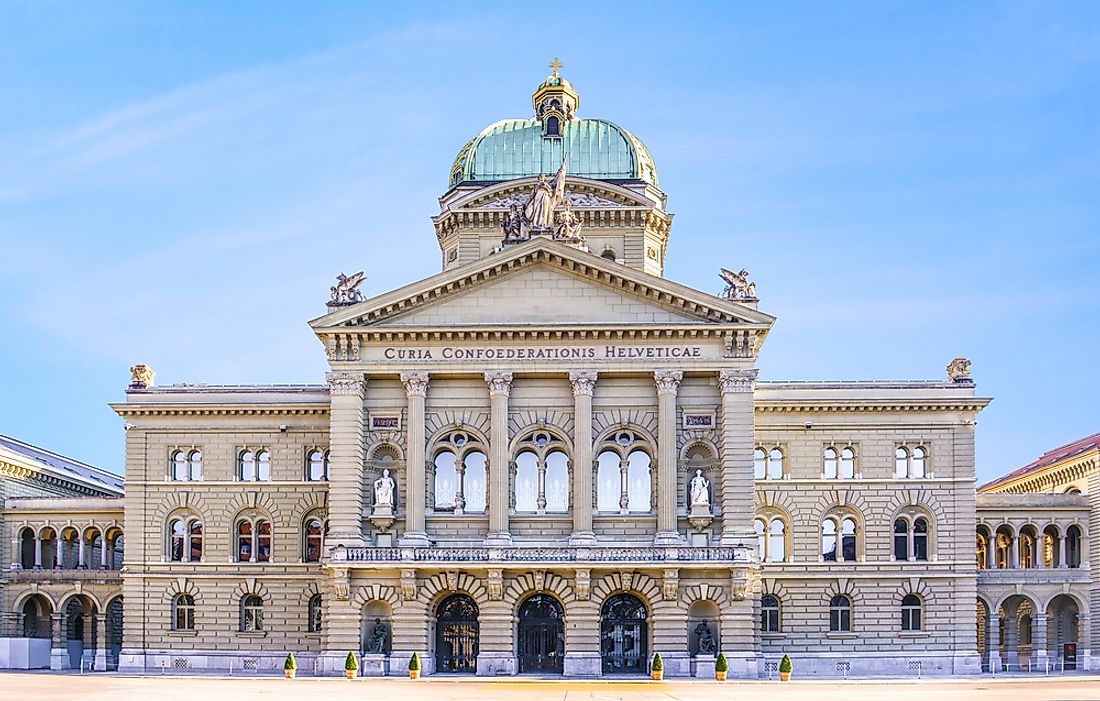What Type Of Government Does Switzerland Have?

Switzerland is the closest state in the world to have a direct democracy where citizens may challenge any law voted by the federal assembly. Switzerland’s Executive, Judicial and Legislative institutions are organized on federal, cantonal and communal levels. Switzerland, unlike many of other European states, does not have a President or a Prime Minister, and the country’s citizens are at the pinnacle of power.
Federal Assembly Of Switzerland
The Federal Assembly or the legislature is comprised of the National Council and the Council of States. The Council of States consists of 46 members who represent the cantons. After every four years, citizens of Switzerland vote for 200 members to constitute the National Council. The two chambers of parliament undertake legislative duties, and their sessions in parliament are open for citizens to attend. Any citizen can challenge any law or amendments proposed by the Federal Assembly.
Federal Council Of Switzerland
Six members constitute the Executive branch that is the Federal Council of Switzerland. They engage in what can be termed as the collective presidency and are elected by parliament. Each of these members leads a federal department (ministry). The country’s seven departments are Finances, Economy and Education, Internal Affairs, Defense and Sports, Energy, Traffic and Environment, and Justice.
The members of the Federal Council are from the four top parties in the country, and this greatly helps in forming a stable government. There is no limit to the term of office as a member of the Federal Council.
The President of the Swiss Confederation, a largely ceremonial role, rotates among the members every year. The representative President represents the country in international conferences, sets the agenda to be discussed during the weekly conferences and addresses the citizens on national holidays.
Judiciary Of Switzerland
Heading the judiciary is the Federal Supreme Court. Judges to the Court are elected by the Federal Assembly after every six years. The Supreme Court is the top court of appeal after the cantonal courts. The Supreme Court also receives appeals on administrative rulings of the federal administration.
Cantonal Administrations
Cantons in the Swish Federations organize themselves in respect to laws and policies, the federal constitution and minorities. Every canton has its constitution and elects an average of 5 members to make up the cantonal government. Most of the cantons also have one parliament. The federal government's delegates many of its duties to the cantonal administrations. 6 of the 26 cantons in the country are regarded as half-cantons, but all cantons have equal rights of autonomy and competencies. Cantons have armed police forces and run universities and hospitals and collect income taxes.
Elections And Referenda
The Swiss electorate can vote at least four times on matters of national proposals every year. The Swiss electorate has more say in national and cantonal affairs than anywhere else in the world. The Swiss electorates elect members of the cantonal governments and the Federal Assembly.
Political Parties In Switzerland
Five major parties are represented in the country’s Federal Council. These parties are Free Democratic Party, Christian Democratic Party, Social Democratic Party, Conservative Democratic Party of Switzerland, and Swiss People’s Party.







